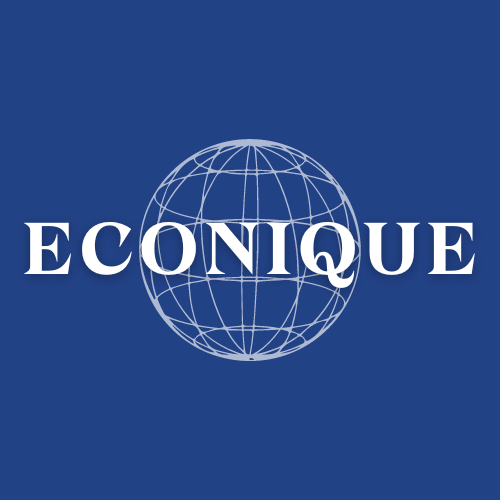Nartegin Tokkazy | 06.11.2024
The Role of Fiscal Policy in Kazakhstan's Economic Stability

Fiscal policy embraces government spending and taxation, and it is one of the major tools in maintaining economic stability. The Kazakhstani government uses fiscal activities strategically, which have abruptly shaped the course of the country's economy, especially in response to global economic crises.
During the global crisis in 2008-2009, Kazakhstan carried out extensive fiscal actions to dampen negative economic contraction. The government presented a stimulus package that accounted for about 21% of the country's gross domestic product, totaling $21 billion. This comprised US$4 billion meant to stabilize the financial sector, and the remaining amount channeled toward supporting the real estate and agricultural sectors and the SMEs. Indeed, these interventions contributed to a confinement of contraction in the economy within manageable limits of 1.2 percent in 2009, and there was a brisk recovery with growth rates of 7.5 percent in 2010 and 5 percent in 2011.
The Kazakhstani government answered the COVID-19 pandemic with a package of fiscal support actions for households and businesses. It was valued at more than 4 trillion tenge in total. This included a tax exemption until December 31, 2020, and financial support to the working citizens who lost income due to the state of emergency, in the amount of 42,500 tenge per month per employee.
Fiscal policy was accommodative in 2021 to cushion the economy against the effects of COVID-19. Budgetary support to households and businesses in distress was maintained, and priorities for public investment continued to shift away from pandemic response toward recovery. An improved oil revenue reduced the budget deficit to 3 percent of GDP from 4 percent in 2020, and the public debt-to-GDP ratio remained broadly unchanged at 24.5 percent.
Against this backdrop, the Public Finance Review by the World Bank in September 2023 felt that strengthening of public finances would ensure the attainment of more inclusive and resilient growth for Kazakhstan. The report emphasized the need for strengthening fiscal policies to sustain macroeconomic stability, with better spending outcomes. It also noted that Kazakhstan's non-oil revenues have remained stagnant as a percentage of GDP over the last 20 years, leaving the budget heavily reliant on oil revenue and increasing the use of quasi-fiscal spending.
In a nutshell, Kazakhstan's fiscal policy has played an instrumental role in guiding the country through economic turbulence and fostering economic development. Whereas these interventions provided for a more stable performance of the economy during crisis periods, continuous attention to diversification of revenue sources and reinforcement of the fiscal framework is required for future stability.
During the global crisis in 2008-2009, Kazakhstan carried out extensive fiscal actions to dampen negative economic contraction. The government presented a stimulus package that accounted for about 21% of the country's gross domestic product, totaling $21 billion. This comprised US$4 billion meant to stabilize the financial sector, and the remaining amount channeled toward supporting the real estate and agricultural sectors and the SMEs. Indeed, these interventions contributed to a confinement of contraction in the economy within manageable limits of 1.2 percent in 2009, and there was a brisk recovery with growth rates of 7.5 percent in 2010 and 5 percent in 2011.
The Kazakhstani government answered the COVID-19 pandemic with a package of fiscal support actions for households and businesses. It was valued at more than 4 trillion tenge in total. This included a tax exemption until December 31, 2020, and financial support to the working citizens who lost income due to the state of emergency, in the amount of 42,500 tenge per month per employee.
Fiscal policy was accommodative in 2021 to cushion the economy against the effects of COVID-19. Budgetary support to households and businesses in distress was maintained, and priorities for public investment continued to shift away from pandemic response toward recovery. An improved oil revenue reduced the budget deficit to 3 percent of GDP from 4 percent in 2020, and the public debt-to-GDP ratio remained broadly unchanged at 24.5 percent.
Against this backdrop, the Public Finance Review by the World Bank in September 2023 felt that strengthening of public finances would ensure the attainment of more inclusive and resilient growth for Kazakhstan. The report emphasized the need for strengthening fiscal policies to sustain macroeconomic stability, with better spending outcomes. It also noted that Kazakhstan's non-oil revenues have remained stagnant as a percentage of GDP over the last 20 years, leaving the budget heavily reliant on oil revenue and increasing the use of quasi-fiscal spending.
In a nutshell, Kazakhstan's fiscal policy has played an instrumental role in guiding the country through economic turbulence and fostering economic development. Whereas these interventions provided for a more stable performance of the economy during crisis periods, continuous attention to diversification of revenue sources and reinforcement of the fiscal framework is required for future stability.


